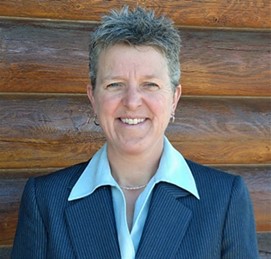The effects of using running-specific leg prostheses on running and sprinting performance
Alena Grabowski, PhD
Associate Professor in the Department of Integrative Physiology
University of Colorado Boulder
Friday, March 24th at 11:45 am
In-Person in SMBB 2650!

To be able to run, athletes with lower limb amputations must use running-specific prostheses. These devices are comprised of carbon-fiber and function like passive-elastic springs. The use of running-specific prostheses for international athletics competitions such as the Olympic Games has generated controversy over the purported function provided by these devices compared to biological limbs. Thus, it is imperative to understand how the use of running-specific prostheses affect the performance of athletes with leg amputation compared to non-amputee athletes. Dr. Grabowski will present results from several studies that have analyzed the effects of using running-specific leg prostheses on metabolic costs and biomechanics during running and sprinting. These studies provide evidence to suggest that the use of running-specific leg prostheses do not provide an advantage to athletes with a leg amputation compared to athletes who do not use such prostheses. Moreover, innovative prosthesis designs are needed to restore running and sprinting performance in athletes with lower limb amputations.
Dr. Alena Grabowski earned her Bachelors degree in Kinesiology and her PhD in Integrative Physiology at the University of Colorado Boulder. She then completed a post-doctoral fellowship with the Biomechatronics Group in the Media Lab at the Massachusetts Institute of Technology and earned a career development award within the Department of Veterans Affairs. Dr. Grabowski is currently an Associate Professor in the Department of Integrative Physiology at the University of Colorado Boulder, a Research Healthcare Scientist within the Department of Veterans Affairs Eastern Colorado Healthcare System in Denver, and directs the Applied Biomechanics Lab. Her research program is focused on determining the physiological and biomechanical effects of using mechanical devices such as lower extremity prostheses, exoskeletons, weight support systems, and sports equipment. She studies how these devices affect walking, hopping, running, sprinting, bicycling, and jumping in people with and without physical disabilities such as leg amputations.
Biomedical Engineering Seminar Series
Bioengineering Elevated Talks: Celebrating 50 years of the Department of
Biomedical Engineering at the University of Utah